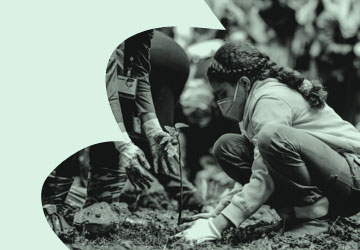Attivismo civico & Terzo settore
Big Society raises big questions
Charities across Britain welcome David Cameron's vision for a bigger, better society but there are doubts

When David Cameron first began using the words Big Society few people really understood what he was getting at and fewer still imagined it was soon to become Britain’s mantra. Far from being just an electoral campaign catchphrase, the Big Society is revealing itself to be the philosophy likely to guide Britain’s coalition government during the next four years.
Google Big Society today and you’ll find a bigsociety.co.uk website, Youtube it and you can watch the Prime Ministers’ speech in Liverpool last week in which he explains that the Big Society vision involves people becoming agents of change in their communities. As he explains in his most important speech since the election, the first stage of a process that will “turn government on its head” will see four areas of Britain (Liverpool, the Eden Valley in Cumbria, Windsor and Maidenhead and the London borough of Sutton) being the testing ground for people led initiatives aimed at working out the big social questions of our time: things like housing problems, youth unemployment and how to deliver public services more efficiently.
Critics have pointed out that reducing the cost of working out how to solve society’s problems is of the Big Society’s biggest kudos but Cameron is adamant that it is more about redistributing power to the “man and woman on the street” than it is about saving money. In perfect liberal style, the Big Society idea refutes the “top-down” approach to resolving social problems which sees “capable individuals being turned into passive recipients of state help” and prefers for people to be the agents of their own change. In Britain’s Big Society, it will be people, not government, who will set up great new schools, businesses that will help people get trained for work and charities that will rehabilitate offenders in prison.
The details of how to get the Big Society machine in motion have yet to be revealed but Cameron has announced that a Big Society Bank will be created to fund the process. Brushing away the opposition’s claims that his was a return to a 19th century, US style approach to society, Cameron assures that he isn’t so naïve as to think that if government rolls back and does less, then miraculously society will spring up and do more. “The truth is we need a government that helps to build a big society”.
Big questions: what civil society things of the Big Society
Britain’s voluntary sector has voiced praises for the direction of Cameron’s vision but many organizations are concerned about how the Big Society will work in practice. Funding is at the top of the sector’s list of doubts, especially as drastic public spending cuts are being made cross the board in an attempt to reduce the country’s national deficit.
VITAeurope spoke to voices from the frontline of Britain’s volunteering sector: Vicki Savage and Mike Locke.
Innovation, communities and the Big Society: Based in London, the Young Foundation works across the UK to stimulate innovation, entrepreneurship and social change. At a first glance they sound exactly the ticket for Cameron’s Big Society idea. Vicky Savage is Programme Leader in local innovation, which means she works alongside Britain’s local authorities on some of society’s trickiest issues, like youth crime and unemployment. According to her, the Big Society is certainly “the direction of travel” but she wonders how new the idea really is. Read more…
Volunteering in the Big Society: Enthusiasm? Yes, but caution too is needed. According to Mike Locke, Director of Public Affairs for Volunteering England, David Cameron’s Big Society idea is a complex piece of social policy to develop. Volunteering, he says, comes in many forms and is done for different reasons so perhaps the British prime minister shouldn’t take for granted that volunteers would want to do things that they might see as being the government’s responsibility. Read more…

